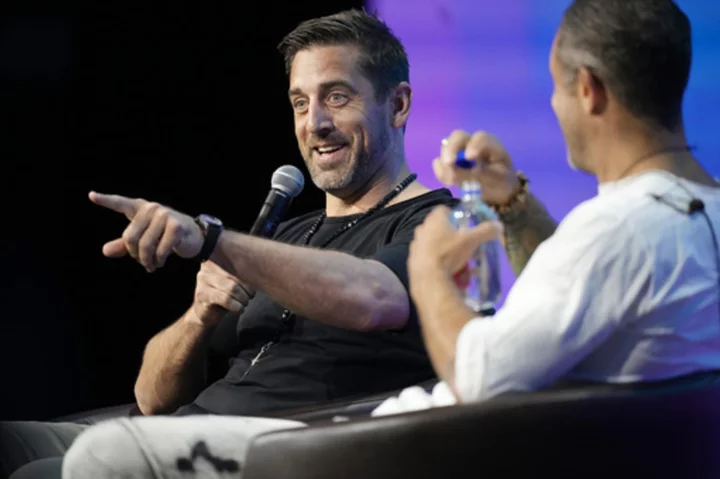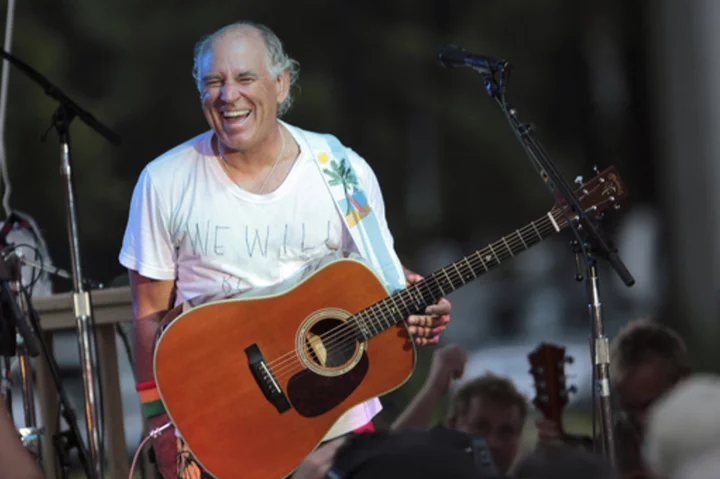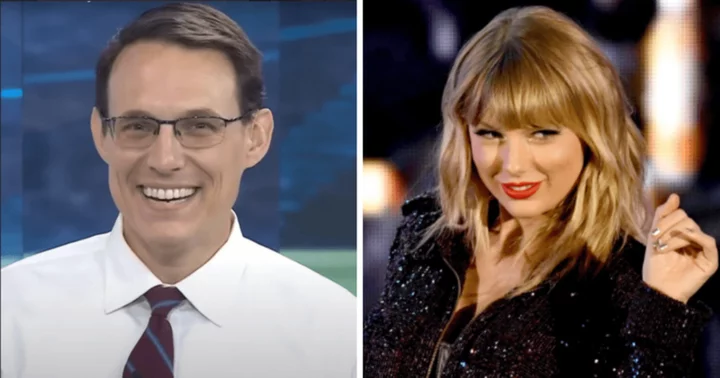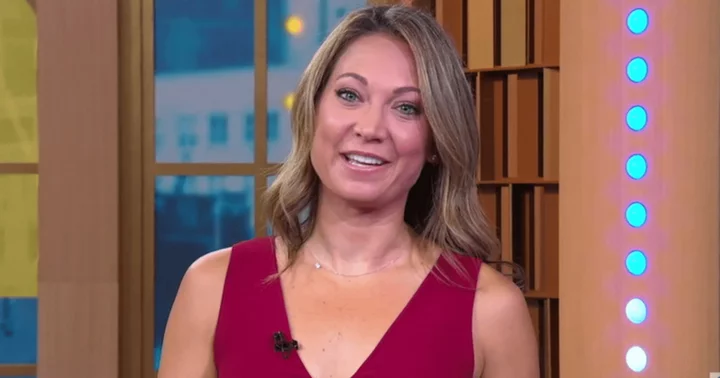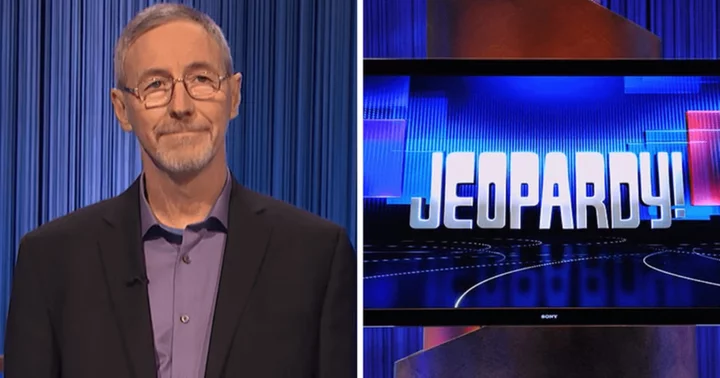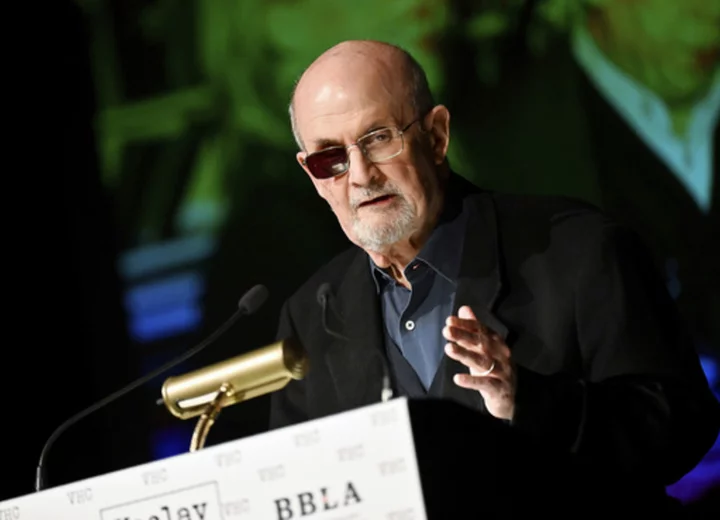DENVER (AP) — An eclectic crowd of thousands — podcasters, vendors, startups, seekers — swarmed a psychedelics conference in Denver this week to experience everything from a dimly lit hall packed with kaleidoscope art and a wide-ranging lineup of speakers from a former Republican governor to NFL star quarterback Aaron Rodgers.
The conference, put on by a psychedelic advocacy group, took place months after Colorado’s voters decided to join Oregon in decriminalizing psychedelic mushrooms. While it’s a sign of growing cultural acceptance for substances that proponents say may offer benefits for things like post-traumatic stress disorder and alcoholism, medical experts caution that more research is needed on the drugs’ efficacy and the extent of the risks of psychedelics, which can cause hallucinations.
Rodgers, who’ll soon debut with the New York Jets after years with the Green Bay Packers, spoke Wednesday night with podcaster Aubrey Marcus. Rodgers described taking ayahuasca with his teammates as “radically life-changing,” and claimed many other pro athletes have reached out to him.
“I found a deeper self love,” said Rodgers of his ayahuasca experience. “It unlocked that whole world of what I’m really here to do is to connect, to connect with those guys, and to make those bonds and to inspire people.”
The organization hosting the conference, the Multidisciplinary Association for Psychedelic Studies, is the largest U.S. advocacy group. It has strategized to reach the full political spectrum, said Nicolas Langlitz, a historian of science who’s researched the boom and bust of psychedelic movements.
“At the time when any topic gets politically polarized, ironically, these super-polarizing substances now get bipartisan support," Langlitz said. Still, he added, the conference is “purely designed to promote the hype."
“Any kind of overselling is not good for science because science should be accurate rather than pushing things," he said. “It’s a tradeoff. (The conference) generates interest, it generates ultimately more research, even though the research might be skewed toward positive results.”
Psychedelics are illegal at the federal level, though acceptance and interest in studying their potential benefits has grown. For example, some researchers believe psilocybin, the compound in psychedelic mushrooms, changes the way the brain organizes itself and can help users overcome things like depression and alcoholism.
The drugs themselves — and the interest in them — are not new. Mid-last century, Aldous Huxley, Timothy Leary and Ken Kesey helped spur the use of psychedelics during the counterculture movement, and optimism brimmed among some psychologists over the drugs’ potential.
But the Nixon administration criminalized psychedelics, pushing them underground.
“In both cases you have this upwelling of exuberance that may or may not be irrational,” said author Michael Pollan, who wrote a book on psychedelics and will be speaking at the conference. “But I think a big difference (now) is that the enthusiasm for the potential of psychedelics cuts across a much more representative slice of the population — it’s not about a counterculture."
Republican strongholds, including Utah and Missouri, have or are considering commissioning studies into the drugs, partly inspired by veterans’ stories. Former Texas Republican Gov. Rick Perry spoke Wednesday about helping get a bill passed in the Texas legislature in 2021 to fund a study of psilocybin for veterans, though he doesn't support recreational use. In Congress, similar veteran-focused proposals brought progressive Democratic Rep. Alexandria Ocasio-Cortez from New York and far-right Rep. Matt Gaetz from Florida into an unlikely alignment.
Public interest also appears to be growing. Just six years ago in Oakland, California, the Multidisciplinary Association for Psychedelic Studies held a conference with roughly 3,000 attendees and a smattering of lesser-known speakers and die-hard proponents.
This time, organizers estimate at least 10,000 attendees. Other famous speakers will include former NHL player Daniel Carcillo, who owns a company specializing in psychedelic therapies; Olympic silver-medal figure skater Sasha Cohen; rapper and actor Jaden Smith; comedians Reggie Watts and Eric Andre, top-10 podcaster Andrew Huberman; and Carl Hart, the chair of Columbia University's psychology department.
Recruiting that celebrity support for psychedelics is part of MAPS' public relations strategy, founder Rick Doblin said. When asked whether platforming a non-expert like Rodgers could mislead the public, Doblin demurred, adding it would be “dangerous” for anyone to claim that there are no risks to taking psychedelics.
Doblin said taking MDMA should happen “only under the direct supervision of a therapist, it's never a take-home medicine.” He also emphasized what many speakers echoed during the first day about psychedelics being paired with mental health professional: “The treatment is not the drug, it’s the therapy that the drug makes more effective."
That was a more tempered approach than his introductory speech, when, to an overflowing theater, Doblin espoused grandiose goals such as “net-zero” trauma by 2070 through the use of psychedelics.
The American Psychiatric Association has not endorsed the use of psychedelics in treatment, noting the Food and Drug Administration has yet to offer a final determination. The FDA did designate psilocybin as a “breakthrough therapy” in 2018, a label that’s designed to speed the development and review of drugs to treat a serious condition. MDMA, often called ecstasy, also has that designation for PTSD treatment.
Both Pollan and Langlitz believe further research is key — especially as the nation faces an unprecedented mental health crisis and people struggle to find adequate treatment. But, Langlitz said, it's important to let research shape the narrative.
“I would just try to keep my mind open to the possibility that in retrospect we will tell a very different story from the one that the protagonists of psychedelic therapies are currently predicting,” he said.
___
Bedayn is a corps member for the Associated Press/Report for America Statehouse News Initiative. Report for America is a nonprofit national service program that places journalists in local newsrooms to report on undercovered issues.

